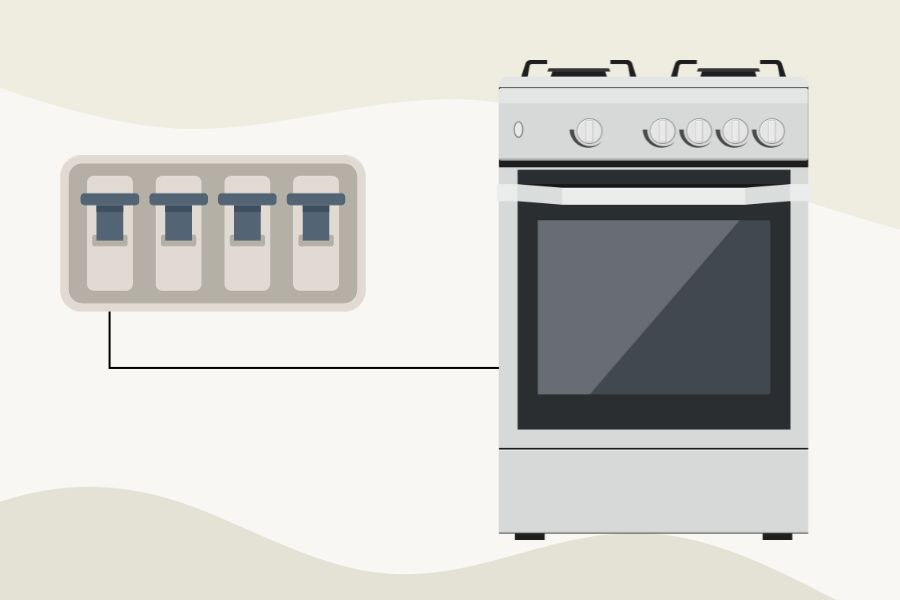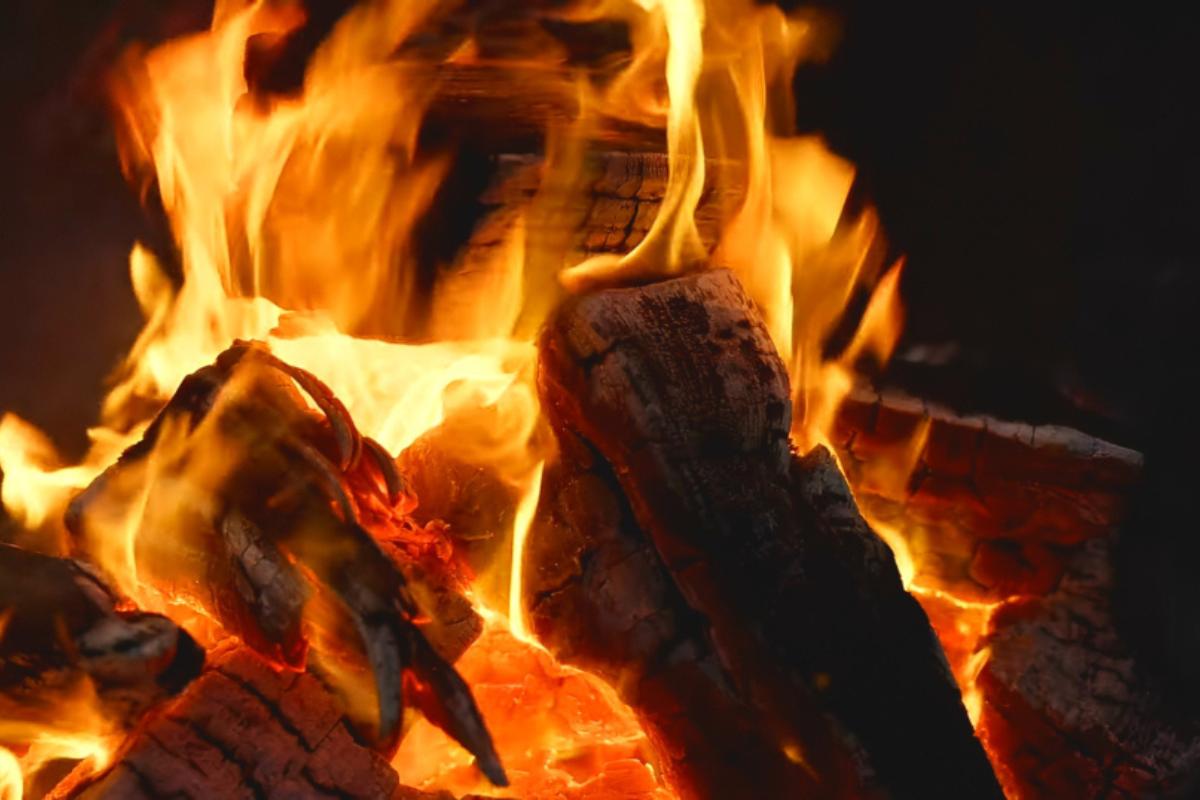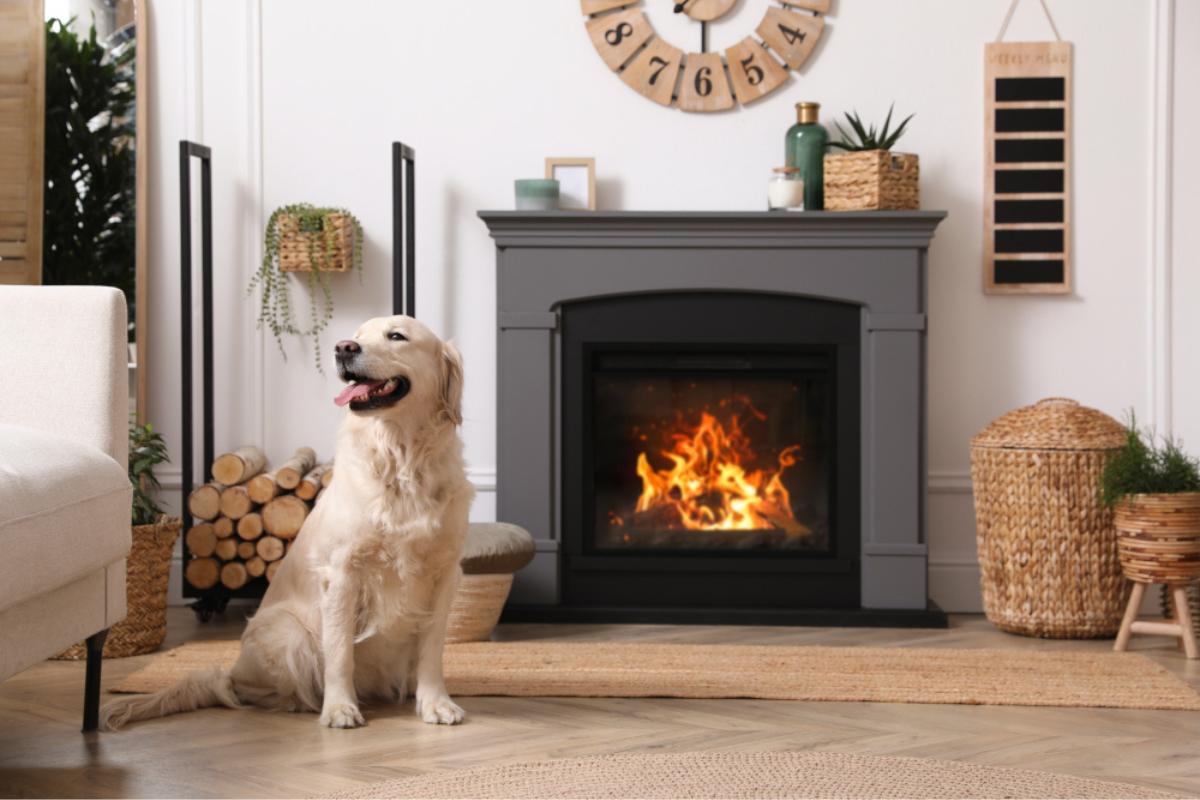Gas stoves are an essential part of most kitchens around the world. They provide a reliable heat source for cooking and are often preferred over electric stoves due to their instant heat and greater control over temperature. However, even though gas stoves primarily run on gas, they still require electricity to operate certain components such as the ignition system, control valves, and temperature sensors. This leads to an important question: Does a gas stove need a dedicated circuit?
Does a Gas Stove Need a Dedicated Circuit?
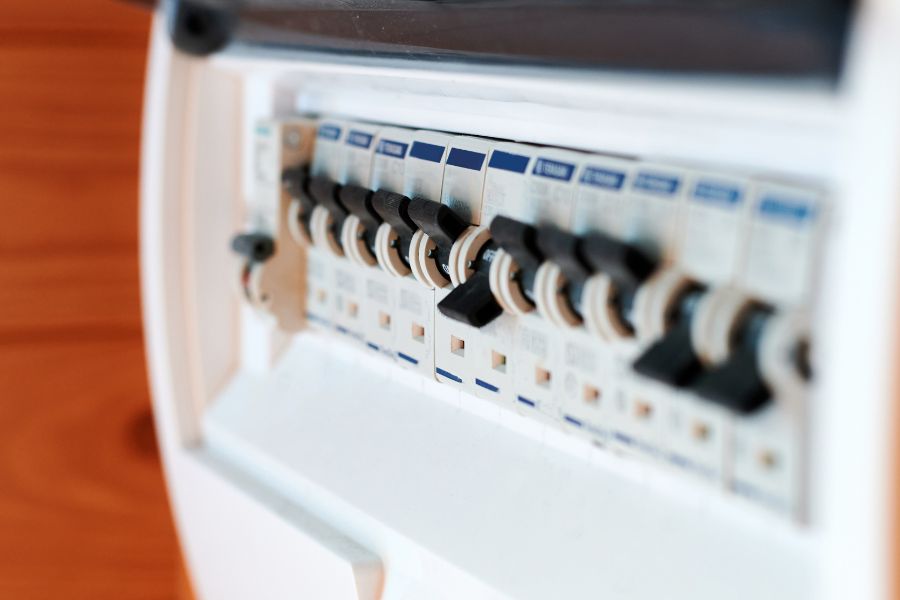
A gas stove should have a dedicated circuit to ensure its safe and reliable operation. Gas stoves have electrical components, such as ignition systems, control valves, and temperature sensors, that require a consistent and uninterrupted power supply.
Sharing a circuit with other appliances can lead to voltage drops and power fluctuations that can affect the stove’s performance and increase the risk of electrical shock and fire hazards.
Therefore, a dedicated circuit for a gas stove is highly recommended for the power supply’s safety, reliability, and consistency. Regular maintenance and inspections of gas stoves are also important to ensure their continued safe operation.
Gas Stoves and Electrical Requirements
Gas stoves may seem to run purely on gas, but they also have several electrical components that play a crucial role in their operation. These components include the following:
- Ignition System: Gas stoves need a spark or flame to ignite the gas and produce heat. Modern gas stoves use an electronic ignition system that requires electricity to create the spark.
- Control Valves: Control valves regulate the gas flow to the burners and are operated by electrical switches or knobs.
- Temperature Sensors: Temperature sensors detect the stove’s temperature and signal the control board to adjust the gas flow to maintain the desired temperature.
Electrical Needs of a Gas Stove
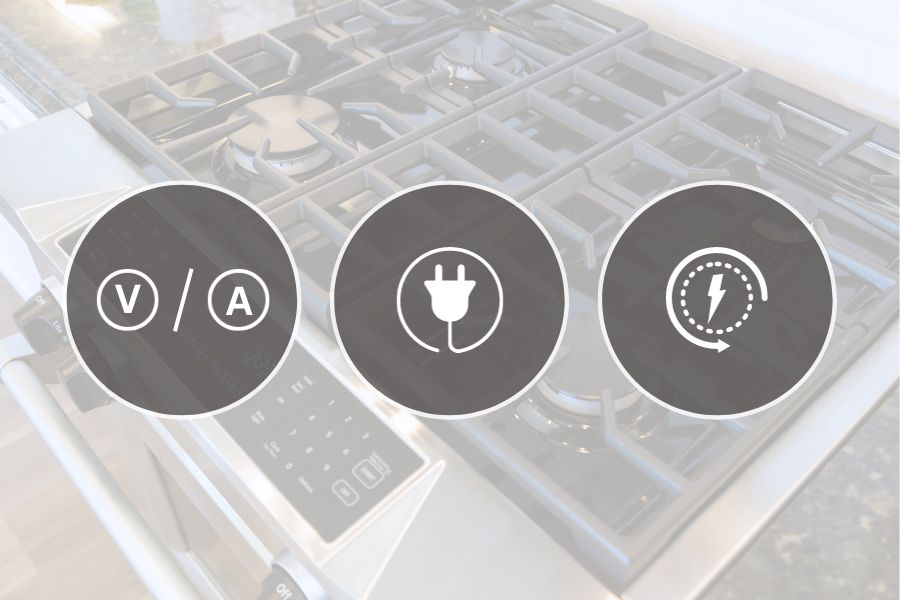
Gas stoves have specific electrical needs that must be met for proper and safe operation. These needs include the following:
- Voltage and Amperage Requirements: Gas stoves typically require a 120-volt electrical outlet, although some may require a 240-volt outlet. The amperage requirements depend on the stove’s size and electrical components, ranging from 15 to 40 amps.
- Electrical Load: The electrical load of a gas stove refers to the amount of electrical power it consumes. This load can vary depending on the stove’s size and features, but it typically ranges from 500 to 1200 watts.
- Power Consumption: The power consumption of a gas stove refers to the amount of electrical energy it uses over a while. This consumption is typically measured in kilowatt-hours (kWh) and can vary depending on the stove’s usage and features.
Understanding the electrical requirements of gas stoves is important for determining whether a dedicated circuit is necessary for their safe and efficient operation.
The Importance of a Dedicated Circuit
A dedicated circuit is an electrical circuit that serves a single appliance or device. It is a separate circuit specifically designed and installed for the appliance, and it does not share power with any other appliances or devices.
Dedicated circuits provide several benefits, including increased safety, reliability, and consistency of power supply. By having a separate circuit for each appliance, there is less risk of overloading the circuit and causing electrical fires or damage to the appliance.
Reasons for Using a Dedicated Circuit
Safety
Safety is the primary reason for using a dedicated circuit for a gas stove. Gas stoves require electricity to operate various components. If the circuit is overloaded, it can cause the wires to overheat and potentially start a fire. A dedicated circuit ensures the stove has a consistent power supply and reduces the risk of electrical fires.
Reliability
Another reason for using a dedicated circuit is reliability. Gas stoves require a consistent and uninterrupted power supply to operate properly. Sharing a circuit with other appliances can lead to voltage drops and power fluctuations, affecting the stove’s performance.
Consistency
Finally, a dedicated circuit ensures a consistent power supply for the gas stove. A separate circuit reduces the chances of interference from other appliances connected to the same circuit. This, in turn, helps to maintain the stove’s temperature and prevent fluctuations that can impact cooking performance.
A dedicated circuit is highly recommended for gas stoves to ensure their safe and reliable operation. In the next section, we will discuss electrical safety concerns associated with gas stoves and the benefits of using a dedicated circuit for safety.
Electrical Safety Concerns with Gas Stoves
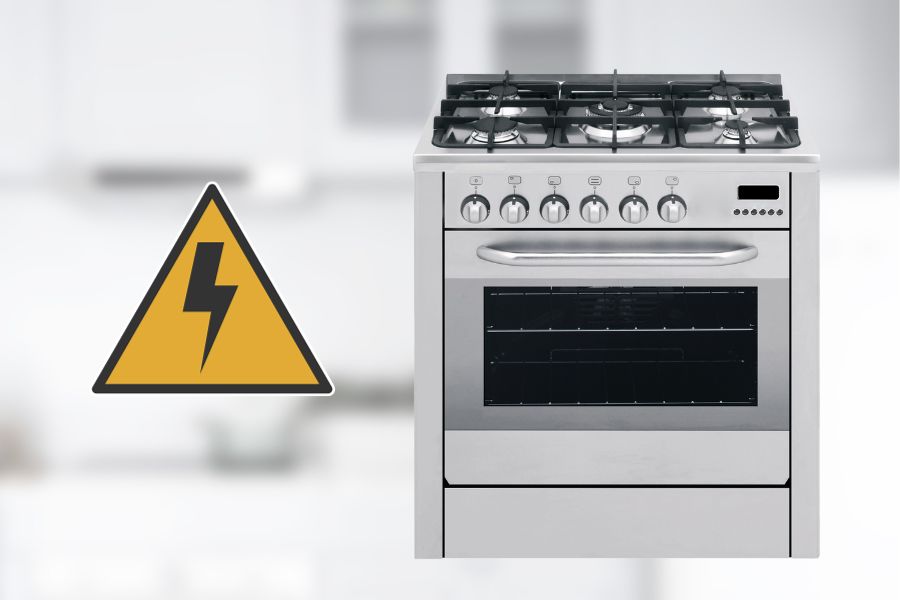
While gas stoves are generally safe to use, some electrical safety concerns are associated with their operation. These concerns include the following:
Shock Hazard
Gas stoves have electrical components that require a source of electricity, and if the stove is not properly grounded, there is a risk of electrical shock. This risk is especially high when the stove is wet, such as when cleaning.
Fire Hazard
Gas stoves that are not properly connected to a dedicated circuit or that are overloaded can cause electrical fires. This can occur when the wiring overheats and ignites nearby combustible materials.
Benefits of Using a Dedicated Circuit for Safety
Using a dedicated circuit for a gas stove can significantly reduce the risk of electrical shock and fire hazards. Some benefits of using a dedicated circuit for safety include:
Reduced Risk of Electrical Shock
A dedicated circuit that is properly grounded can reduce the risk of electrical shock from a gas stove. The dedicated circuit provides a consistent and uninterrupted power supply, reducing the chances of electrical surges or power fluctuations leading to electrical shocks.
Lower Risk of Fire
A dedicated circuit ensures that the gas stove is not sharing power with other appliances, reducing the risk of overloading the circuit and causing electrical fires. Additionally, a dedicated circuit can ensure that the circuit breaker is properly sized and can trip in the event of a short circuit, preventing fires.
A dedicated circuit for a gas stove is highly recommended for safety. The next section will provide tips for safely operating a gas stove and the importance of regular maintenance and inspections.
Amps Required for a Gas Stove
The amps required for a gas stove can vary depending on the model and specific features. However, gas stoves typically require a relatively low amount of electrical power compared to other kitchen appliances like refrigerators, ovens, and dishwashers.
The ignition system of a gas stove is the primary electrical component that requires power, typically between 3-4 amps. The control valves and temperature sensors also require a small amount of power. However, these components typically consume less than 1 amp of electricity.
It is important to note that the specific electrical requirements for a gas stove can vary depending on the make and model. Therefore, it is recommended to check the manufacturer’s specifications or consult a licensed electrician to determine the exact electrical needs of your gas stove. This information can help you ensure a dedicated circuit with the appropriate voltage and amperage to power your gas stove safely and reliably.
Calculating the Power Consumption of an Oven
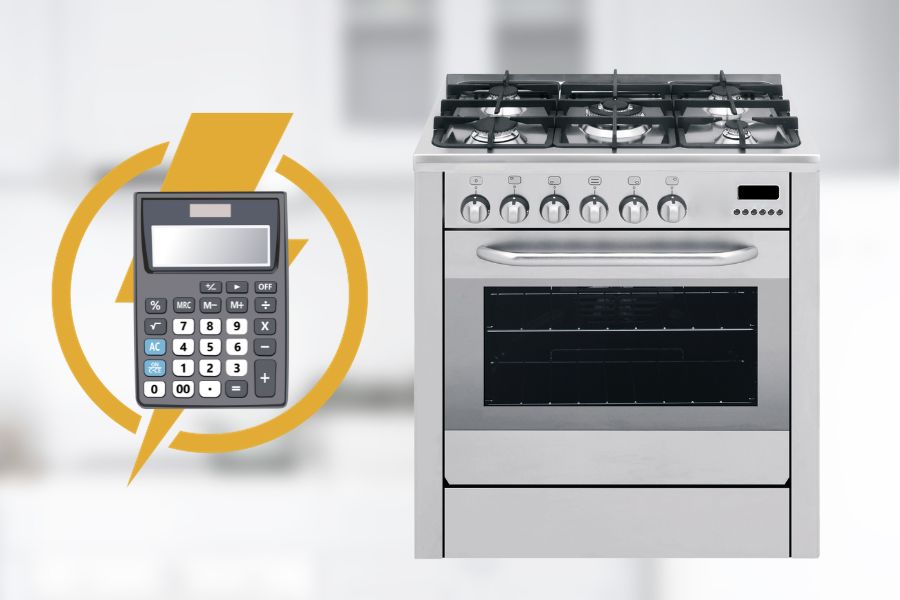
To calculate the power consumption of an oven, you can use the following formula:
Power consumption (kWh) = Wattage x Hours used per day / 1000
For example, if your oven has a wattage of 2000 and you use it for 2 hours per day, the calculation would be:
Power consumption = 2000 watts x 2 hours / 1000 = 4 kWh per day
Once you have calculated the power consumption, you can determine the cost of running the oven by multiplying the electricity rate in your area by the number of kilowatt-hours used per day. For instance, if the electricity rate is $0.15 per kWh, the cost of running the oven for 2 hours per day would be:
Cost = 4 kWh per day x $0.15 per kWh = $0.60 per day
Remember that these calculations are estimates and may vary depending on the specific oven model and usage patterns. It is always recommended to check the manufacturer’s specifications and consult a licensed electrician to ensure your oven is powered safely and efficiently.
Problems of Not Having a Dedicated Circuit for a Gas Range
The problems of not having a dedicated circuit for a gas range are:
- Frequent tripping of the circuit breaker
- Potential damage to the range or other appliances
- Reduced performance and efficiency of the gas range
- Increased risk of a fire hazard due to overloading of the circuit
Appliances That Need a Dedicated Circuit
Here are some examples of appliances that typically require a dedicated circuit:
- Heating and cooling systems
- Refrigerators and freezers
- Ovens, stoves, and ranges
- Hot Water heaters
- Microwaves
- Sump pumps
These appliances often have high voltage and current requirements, which can cause overloading of the circuit if they share it with other devices. Therefore, it is important to ensure that these appliances have their dedicated circuit to operate safely and efficiently.
Sharing a Circuit with a Gas Stove
While it is generally recommended that a gas stove have a dedicated circuit, a gas stove can share a circuit with other small appliances or devices as long as they do not exceed the total capacity of the circuit.
However, it is important to note that heat-producing devices such as space heaters, hair dryers, and irons should not share a circuit with a gas stove as they can cause overheating or tripping of the circuit. These devices draw a lot of power and can overload the circuit, leading to safety hazards such as electrical fires.
It is important to ensure that the total power draw of all the devices on a shared circuit does not exceed the capacity of the circuit to avoid any safety hazards. Suppose you are unsure about your gas stove’s or other appliances’ electrical requirements. In that case, it is best to consult a licensed electrician to ensure they are safely installed and operating.
Closing Thoughts
While gas stoves are generally safe to use, they have electrical components that require electricity. Therefore, it is important to consider the electrical requirements of a gas stove and the benefits of using a dedicated circuit to ensure their safe and reliable operation. A dedicated circuit can provide a consistent and uninterrupted power supply, reducing the risk of electrical shock and fire hazards.
Additionally, regular maintenance and inspections of gas stoves are important to ensure their continued safe operation. By following these guidelines and considering the importance of electrical safety, homeowners can enjoy the benefits of cooking with gas stoves without compromising safety.

